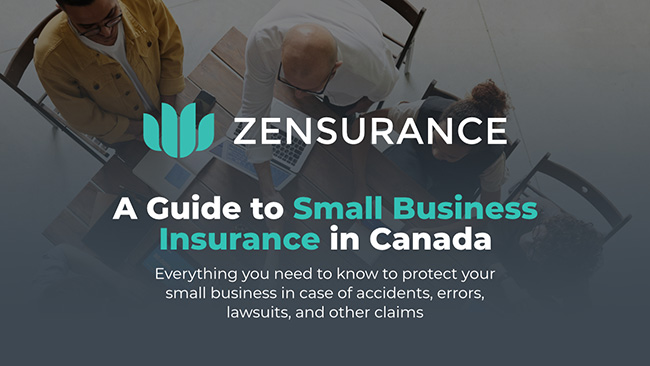It’s traditionally the most lucrative shopping season of the year for Canadian retailers and small business owners: the year-end holiday season. For many retailers, the festive season accounts for a significant portion of their annual sales.
It’s a time when consumers tend to spend more on gifts, decorations and food, take advantage of retail discounts and promotions, and make emotional purchases. But will holiday retail sales this year rise, fall, or remain the same as in 2022?
According to research consultancy PwC Canada, 76% of Canadian consumers will spend the same amount this year as in 2022, with the average amount this holiday season estimated to be $1,635. Moreover, PwC Canada says 63% of Canadians intend to purchase in-store at a traditional brick-and-mortar shop versus 43% who plan to buy through an online marketplace and 22% who will via a branded website.

Download Our FREE Insurance Guide
Learn everything you need to protect your small business.
Whitepaper download
"*" indicates required fields
Your email address will be used by Zensurance to provide latest news, offers and tips.
You can unsubscribe at any time.

Meanwhile, a separate consumer survey suggests 44% of Canadians will do their holiday shopping early, with 35% citing November, 10% saying the first half of December, and 3% in the week leading up to Christmas Day.
In other words, the chance for retailers to woo budget-conscious shoppers is now. To do that successfully, ramping up promotions, increasing their inventory to avoid supply chain issues, and extending store hours are ways retailers can spike their bottom lines.
Here are three common scenarios retailers and other small businesses face in the runup to and during the festive season, and what business owners should think about concerning the heightened liability risks that go with them:
1. Amassing More Inventory for the Holidays
Rising consumer demand from November to January means stockpiling higher levels of inventory and merchandise versus other times of the year.
More inventory in your shop or warehouse also means increased potential for injuries, damages, and unexpected incidents that can crush any financial gains. Among the risks retailers face:
- Product liability: Increased stock volumes increase the likelihood of defective products that may cause third-party bodily injury or third-party property damage to customers. Product liability insurance is a must-have to manage any claims of injury or damage caused by a product you manufacture, distribute, or sell.
- Inventory management: Rotating perishable goods and removing expired products can get overlooked. That, too, can lead to third-party bodily injuries to customers.
- Slips, trips, and falls: Stores amassing more inventory can lead to cluttered aisles, and a higher volume of customers can also mean wet floors from water and snowmelt from outside. Both raise the possibility of a customer falling and getting injured on your premises.
- Internal theft: While a retail insurance policy includes commercial property insurance to cover damage or loss because of fire, water, vandalism and theft, to protect your business from the threat of internal theft and fraud, you need commercial crime insurance.
- Adequate coverage limits: Does your existing retail or other business insurance policy have sufficient coverage limits to account for excess inventory? You need to ensure your coverage limits align with the value of goods you have in case inventory is damaged or destroyed by fire, water, or other unforeseen event. Some commercial insurance policies include “peak season” endorsements, which provides policyholders with an automatic increase during specific peak seasons.
2. Running a Seasonal Business
Some businesses only operate at fixed times of the year. For example, small hospitality businesses located in popular tourist regions, when summer is at its peak, might only operate from June to September. Others, like Christmas tree farms, thrive from November to December.
But therein lies a problem for these business owners – is buying seasonal business insurance instead of a year-round policy the way to go?
- Seasonal coverage
On one hand, seasonal business insurance provides flexibility to change your policy from one season to the next. On the other hand, you’re only covered for the days and weeks you’re open for business, and it leaves a coverage gap, so you’re exposed to potential losses during the months you’re not covered. Plus, buying seasonal coverage annually isn’t necessarily more cost-effective. You may see a rate increase each season because insurance providers might regard a seasonal business as having more risk.
- Year-round coverage
Buying an annual policy has advantages over short-term, seasonal insurance. For starters, you get continuous coverage all year whether you’re open to the public or not. Why does that matter? Think of it this way: thieves or vandals don’t restrict their activities to when you’re open. Likewise, fire knows no seasonal bounds. An annual policy is also easier to manage since you only need to update and renew it once a year.
3. Opening a Temporary Pop-Up Shop
Pop-up shops, or short-term shops, have become increasingly popular in Canada with retailers, landlords, and consumers since the early 2000s. They’re not a new-ish phenomenon, though. Buying a Halloween pumpkin or Christmas tree from a roadside stall is a long-standing tradition.
Nevertheless, pop-up stores offer benefits for all:
- For retailers, it’s a short-term lease in a desirable, high-traffic location to attract consumers.
- For landlords with vacant commercial properties, it means income from new tenants.
- For consumers, it’s the allure of buying something special and experiencing something unique that’s only available for a short time.
The liability risks retailers with pop-up shops face are similar to those with permanent, year-round stores. However, getting short-term liability insurance can be challenging to arrange with insurance providers that prefer selling annual policies.
Holiday Shopping Online: Are There Additional Risks?
Selling goods exclusively or partially online doesn’t come without risks. While you may not need to worry about slip-and-fall accidents, there are other worries for online retailers, including:
- Product liability: Whether online or offline, retailers are responsible for every product they sell, whether they manufacture it or not.
- Digital payments compliance: Accepting digital payments from consumers via credit and debit cards requires complying with the Payment Card Industry Data Security Standard (PCI DSS) to protect consumers’ data. All Canadian retailers or merchants storing, processing, and transmitting a cardholder’s information must comply with PCI DSS or face fines.
- Cyber liability: Selling online comes with cybersecurity risks and the threat of online scams. If your business suffers a data breach or cyber-attack, you could be liable for damages and expenses related to notification and credit monitoring fees and potential legal action.
- Website accessibility regulations: Your store’s website must be accessible to individuals with disabilities, or you may face lawsuits or regulatory fines for violating provincial accessibility standards. For instance, in Ontario, the Accessibility for Ontarians with Disabilities Act (AODA) requires all businesses and non-profit organizations with 50 or more employees to ensure the accessibility of any web content. Even if you have fewer than 50 employees, ensuring your digital content is accessible is wise since it will appeal to more consumers.
- Shipping and delivery issues: Online retailers can be held liable for issues related to late or damaged deliveries, including lost or stolen packages.
How to Protect Your Assets Year-Round
Whatever type of small business you own, business insurance is essential for protecting your finances and reputation.
You need an affordable policy that adequately covers your liability risks. That’s where Zensurance comes in: we specialize in helping small business owners get low-cost insurance and customizing it to suit their needs.
Fill out our online application for a free quote. Let our trusted, knowledgeable brokers find the policy you require from one of more than 50 insurance providers in our partner network, ensure you have adequate coverage limits, and tailor the policy to suit your budget so you can focus on serving your customers and growing your business.
Recent Posts
Why November Is the Perfect Time for Bookkeepers to Review Their Insurance
As we inch toward the end of another year, bookkeepers are busy preparing for the end of their clients’ financial year. But now is the ideal time for bookkeepers to review and assess their insurance. We’ll give you 10 reasons why.
Is Your Salon Ready for the Holidays? Insurance Tips for Beauticians
Salon owners and independent beauticians need to stock up on the products they need to make their clients shine over the holidays. But ensuring they're adequately covered with customized insurance is also critical. Here's what to know.
10 Tips for Closing Your Small Business for the Winter
Are you closing up shop for the winter? Ensuring your property is prepared for winter and your valuable contents and inventory are safely stored is vital. See our tips for how small business owners can shut down operations and keep their assets safe.
Sign Up for ZenMail
"*" indicates required fields








